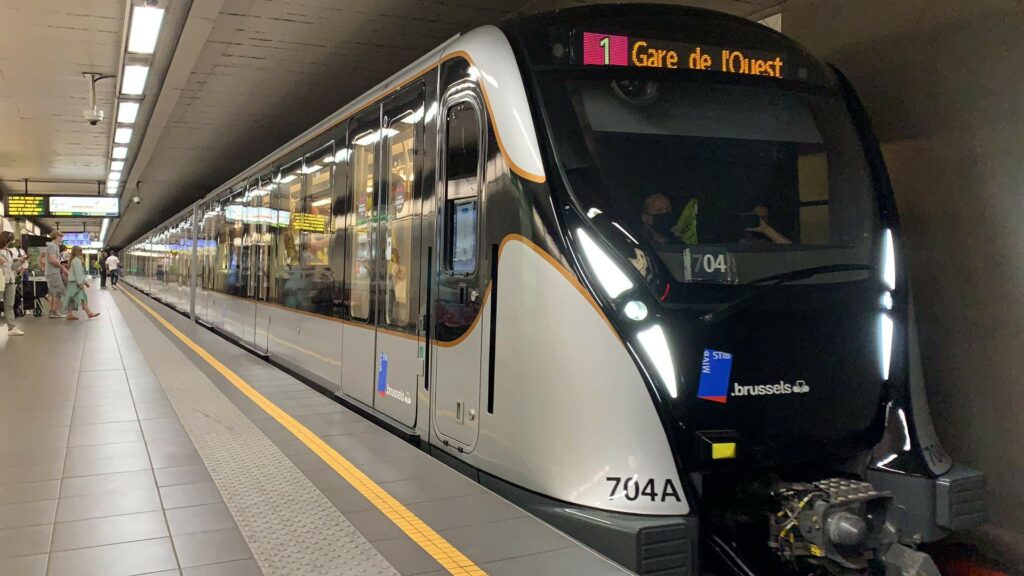For over two years, local residents on the routes of Brussels metro lines 1 and 5 have been complaining about persistent noise pollution. The cause of this noise – defective wheels – will gradually be resolved this year, public transport company STIB has announced.
Not long after the new M7 metro carriages were put to use on Brussels metro lines 1 and 5, the number of complaints about noise pollution from locals increased in the areas of Auderghem, Etterbeek, Molenbeek-Saint-Jean, Anderlecht, Woluwe-Saint-Lambert and Woluwe-Saint-Pierre where the carriages passed by, local media reported extensively.
STIB carried out measurements, which revealed an abnormal "oval formation" on certain wheels of the new metro carriages. This leads to stronger vibrations, which in turn creates more noise.
Temporary fixes
A number of interim solutions – such as more frequent railgrinding, a suspension system under the rails, and the accelerated repair of defective wheels – have already been implemented, which have already significantly reduced the number of complaints.
Additionally, broken wheels were taken to a wheel lathe for maintenance to restore their perfectly round shape. But this is does not prevent wheels from becoming oval again.
This week, STIB announced that the new M7 metro wheels supplied by the manufacturer no longer show any structural defects after various quality tests. Following these results, 16 problematic wheels are will be replaced, and the performance of the new wheels will be monitored during use for three to four months.
If all goes according to plan, an additional order for new wheels will be made, which would mean that the wheels will be replaced over the course of 2024.
While this will gradually reduce the problems, STIB spokesperson An Van hamme told Bruzz that the issue will still take some time to resolve, possibly even until after 2024. "About 1,000 wheels need to be replaced, which is quite a job. Additionally, not all carriages can be worked on at the same time because then public transport will be at a standstill."
Related News
- Woluwe-Saint-Lambert sues STIB and Brussels for noise pollution
- 'Quieter city, better quality of life': Brussels takes stock of three years of 30 km/h
- The Council of State has rejected Flanders' request to fly over Brussels
But many residents are impatient: when STIB explained the latest developments in Etterbeek last week, several people proposed other solutions such as taking the M7 carriages out of service, La Dernièure Heure reports.
However, as there are not enough reserve carriages this would reduce the frequency of the metro lines, which are already completely full during peak hours.
Slowing down the metros to limit disruption faces the same problem: since the disruption affects the entirety of the 1 and 5 lines, a speed reduction would increase travel time, meaning extra metros would have to be added to maintain frequency.

